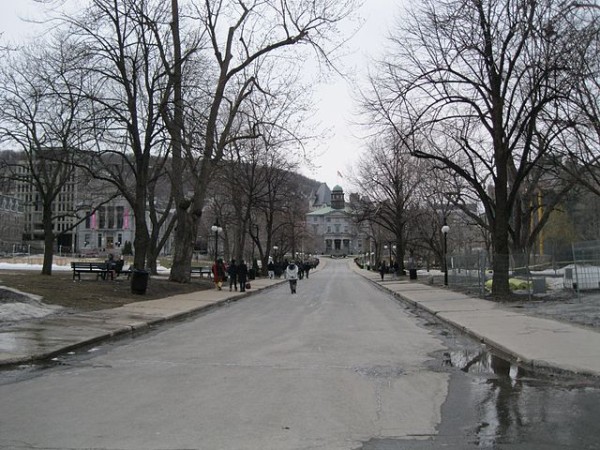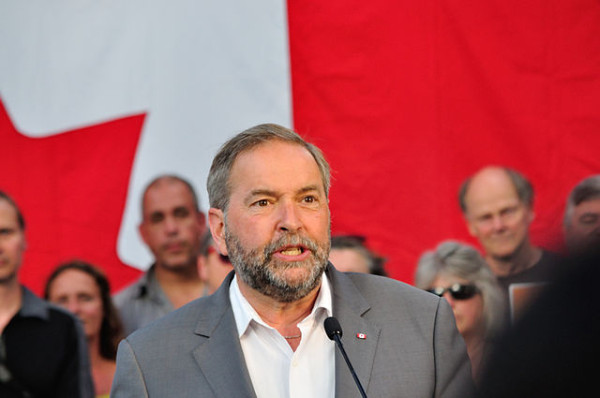
The Boycott, Divestment and Sanctions movement, dedicated to the proposition that Israel’s existence is illegitimate, has achieved a string of successes since its founding eleven years ago. It’s no longer a marginal group in the shadows struggling for recognition.
Created by a coalition of non-governmental Palestinian organizations, it draws inspiration and strength from a BDS campaign in South Africa in the 1980s that contributed to the overthrow of apartheid.
A generation on, the BDS movement is still fighting. The object of its wrath is now Israel, though Israel is pushing back hard. Its strategy is to exert pressure on Israel to recognize Palestinian rights in all their permutations. Its tactic is to strangle Israel’s economy by means of an international boycott that also punishes companies that do business with Israel. In its quest to isolate Israel on all fronts, BDS also targets Israeli cultural and academic institutions.
BDS has been particularly successful on university campuses, where our future leaders and trend-setters are educated.

On February 22, McGill University in Montreal became the latest North American institution of higher learning to endorse the objectives of the BDS movement, which broadly call for a two-state solution to the Arab-Israeli conflict, equal rights for Israeli Arabs and the right of Palestinian refugees to return to their former homes in what is now Israel.
The motion, sponsored by the McGill BDS Action Network, was brought before the Student Society of McGill University for the third time in 18 months. It passed by a margin of 512 to 357.
On the same day, coincidentally, Canada’s Parliament condemned the BDS campaign in a resounding 229-51 vote.
The McGill motion may not stand the test of time because it requires ratification by the entire student body. And, as the dean of students pointed out, it does not directly affect McGill’s overseas investment policy. Nonetheless, it’s symbolically important and sends a powerful message.
The motion underscores the reality that animus toward Israel is growing among emerging elites. It’s a highly disturbing development. The popularity that Israel basked in after the 1967 Six Day War has definitely dissipated and will never return unless Israel finally settles its long-running dispute with the Palestinians.
Once a liberal cause, Israel has become the darling of conservatives like Ted Cruz and Donald Trump and evangelical Christians like Pat Robertson. Young people who consider themselves progressive and open-minded generally dismiss Israel as a regressive ethnic state that discriminates against its Arab minority, oppresses the Palestinian Arabs, builds and expands settlements and refuses to end its nearly 50-year occupation of the West Bank.
Ironically, their perception of Israel is heightened by Israel’s right-wing government. Day by day, Israel creates facts on the ground in the West Bank, while Israeli Prime Minister Benjamin Netanyahu and his key ministers continue to express opposition to Palestinian statehood, preferring the debilitating and dangerous status quo to conflict resolution.
In Israel, meanwhile, Israeli Arabs, comprising one-fifth of Israel’s population, remain second-class citizens in terms of government budgetary allocations, the incidence of land expropriations and the availability of job opportunities. Israel is a vital democracy, one of the very few democracies in the Middle East, but Israeli Arabs do not reap all its benefits.
The BDS movement has seized upon these glaring injustices and inequities to make its case and increase its following.
I have very mixed feelings about the BDS movement.
If a two-state solution and Jewish-Arab equality were its only goals and raison d’etre, I might even rally behind its banner. After all, most Israelis and many of Israel’s supporters abroad back Palestinian statehood. Israel’s chief ally, the United States, is in favor of a two-state solution as well.
And, of course, I endorse the principle of full equality for Israeli Arabs, the descendants of Palestinian Arabs who never left their villages, towns and lands during the 1948 War of Independence. They deserve fair and equal treatment and should not have to wait any longer for it.
What ultimately bothers me about the BDS campaign is its unyielding stance on the right of return, which, if implemented, would mean the end of Israel as a Jewish state. I strongly believe this is its real goal. Let’s call a spade a spade. The BDS movement wants to replace Israel with a binational state. Its objective is a one-state solution.
BDS’ denial of the Jewish people’s right to statehood in their ancestral homeland smacks of antisemitism. Israeli Jews are not Algerian pieds noires. They have deep and documented historical, cultural and religious claims and connections to the land that predates the arrival of Arabs in Palestine. It’s a historical fact that BDS supporters shamelessly try to distort.
There are more than 50 Muslim states in the world, but in the skewed BDS universe, a solitary Jewish state is unacceptable and intolerable, beyond the pale.

For this compelling reason, I oppose the BDS movement and applaud the decision by Canadian parliamentarians to condemn it.
The parliamentary resolution was jointly sponsored by Conservative Party MPs Tony Clement and Michelle Rempel and supported by all but about a dozen members of Prime Minister Justin Trudeau’s ruling Liberal Party.
Rejecting the BDS campaign’s “demonization and delegimization” of Israel, the resolution calls upon Canada “to condemn any and all attempts by Canadian organizations, groups or individuals to promote the BDS movement, both here at home and abroad.”

In denouncing it, Canadian Foreign Minister Stephane Dion was correct to suggest that a boycott of Israel will not work. It will not move Israel by one iota. And he was right to characterize the boycott movement as a new form of antisemitism.
To their discredit, the left-of-center New Democratic Party and the single-seat environmentalist Green Party rejected the Conservative Party resolution. Justifying his position, NDP leader Thomas Mulcair said, “Let’s be clear, the Conservatives are proposing to limit what topics Canadians are allowed to debate. This goes against our fundamental freedoms.”
What nonsense.
Mulcair’s rationale is simply inexplicable.

In its platform, the NDP officially rejects the BDS movement, supports Israel’s right to exist as a Jewish state and endorses Palestinian statehood. What, then, possessed Mulcair to vote against the Conservative Party resolution? Party politics? Must he be reminded that the BDS movement essentially seeks Israel’s destruction as a Jewish state? That’s the core of the matter.
Mulcair’s cowardice speaks volumes about his integrity and his leadership qualities.
